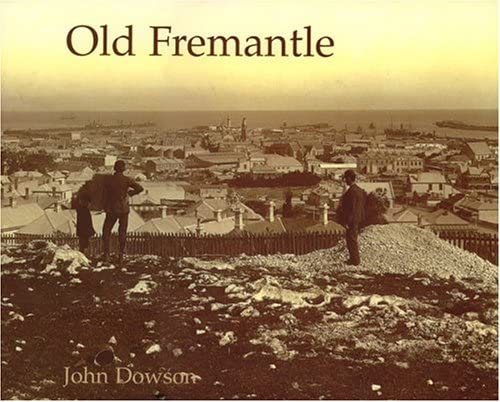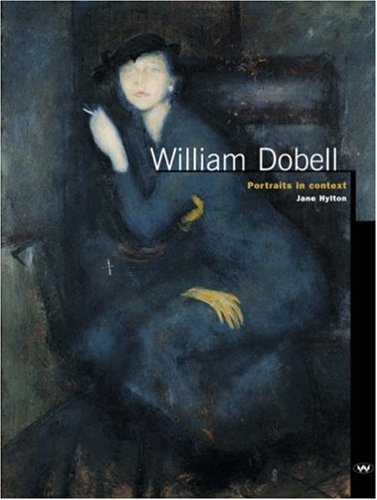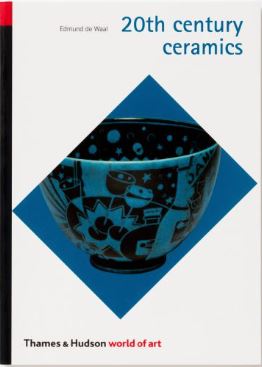- Free Article: No
- Contents Category: Art
- Review Article: Yes
- Article Title: Art in brief - March 2004
- Online Only: No
- Custom Highlight Text:
History of Modern Design has developed from a course of the same name at Drexel University in Philadelphia. In keeping with its didactic origin, the subject is presented in chronological order, illustrated with more than 500 images, 125 of which are reproduced in colour. The book is ambitiously broad in its coverage, commencing with the seventeenth century and ending in the twenty-first, focusing on design from Europe and North America, and ranging through furniture, interiors, metalwork, ceramics, graphic design, typography, and product design. A good two-thirds of the book is devoted to the twentieth century, which is presented in context from the preceding historical surveys. While the focus is on design for mass production and industrial processes, the crafts are not entirely neglected. An extensive bibliography on design, coupled with helpful reading lists, will prove popular in this useful introduction to the complex and wide-ranging subject of design. (CM)
Old Fremantle: Photographs 1850–1950
by John Dowson
UWA Press
$75hb, 223pp
Photography has been around for more than 150 years, with many developments, from daguerreotypes, which had a brief life in Australia, to the latest in digital technology. Old Fremantle: Photographs 1850–1950 contains an impressive collection of 240 photographs taken in Fremantle from 1850 to 1950. The detail in each photograph is of such luminosity that one could pore over the book for hours, exploring a world that no longer exists. The author lists and describes the photographers of Fremantle, and then breaks the book into a number of categories: Port, City, Home, People and Pleasure, Trains and Trams, Business and War. Phillip Adams writes briefly about the lure of the monochrome, and George Seddon places Fremantle in its context. This book offers a fascinating record of Fremantle’s past. (AMT)
A New City: Photographs of Melbourne’s land boom
edited by Ian Morrison
Miegunyah Press
$39.95hb, 117pp
Charles Bristow Walker was an obscure Melbourne photographer who worked for just over a decade as a photographer and left behind few clues about his life. He took many photo-graphs of Melbourne during the land boom, of which 140 are reproduced in this book, along with commentaries from various historians, librarians, and archivists. The photographs show a proud and energetic city developing from the wealth of the gold rush. There are images of recognisable Melbourne landmarks, such as the Melbourne Town Hall, the Royal Botanic Gardens, Caulfield Racecourse, and the State Library. Walker’s photographs give a fascinating insight into the changing Melbourne of the 1880s and 1890s. A tram transports passengers to the ‘Cyclorama of Old Melbourne’, and we see St Patrick’s Cathedral under construction. (AMT)
The Astor
edited by Jan Roberts
Ruskin Rowe Press
$69.95pb, 127pp
On 25 October 1923 the famous Astor in Macquarie Street, Sydney, was opened. One of Australia’s grandest residential buildings, it has been home to many people such as artist Portia Geach, silent movie star Vera James, gynaecologist Derek Llewellyn-Jones and satirist Barry Humphreys. The Astor recently celebrated its eightieth birthday. This book draws on material from The Astor’s archives. Contributors include Clive Lucas, Donald Ellsmore, Scott Robertson, Robert Kroening, and Maisy Stapleton. The book includes a day in the life of the caretaker in 1928, portraits of some of its notable and eccentric residents, letters from the archives, and an inside view of The Astor today. (AMT)
Lionel Lindsay in Spain: An Antipodean abroad
by Colin Holden
Miegunyah Press
$49.95hb, 174pp
After spending six months in Spain during 1902, Lionel Lindsay developed a lifelong passion for the country. He went on to produce more than 100 works of art based on Spanish subjects. Lionel Lindsay in Spain, drawn from diaries, letters, and other materials, is a beautifully produced book and contains more than eighty illustrations. The first part explores Lindsay’s four visits to Spain and its influence on his art. The second looks at Lindsay’s detailed record of the processes he used in his printmaking. Nearly a third of the book contains a gallery of Lindsay’s prints, and a commentary on each one. There is also a detailed Appendix of the Spanish Intaglio Print Images Revised Catalogue. (AMT)
William Dobell: Portraits in context
by Jane Hylton
Wakefield Press
$39.95pb, 64pp
William Dobell won the Archibald Prize three times, most famously in 1944 for his controversial Portrait of an artist (Joshua Smith), which challenged the favoured style of portraiture. Focusing on the controversial painting and Dobell’s earlier works, this book is the third in a series featuring artists represented in the collection of Carrick Hill. The book, divided into four parts, opens with the story behind Portrait of an artist, discusses a selection of Dobell’s early works, looks at the recovery of damaged paintings after the 1958 fire at Carrick Hill, and includes a brief biography of Dobell. It also features twenty-nine plates, including two studies and a sketch for Portrait of an artist. (AMT)
Human Scale in Architecture: George Molnar’s Sydney
by Jo Holder, Robert Freestone and Joan Kerr
Craftsman House
$66hb, 152pp
George Molnar was a trained architect and one of Australia’s greatest cartoonists. In Human Scale in Architecture, the authors show Molnar’s influence on Sydney’s architecture through his satirical cartoons. Molnar, who never learnt to drive, was a great observer of the development of his city. The book opens with a brief biography of its subject and is then divided into sections that examine Molnar’s work from the 1950s through to the 1980s, interspersed with essays by the three authors. It also includes Molnar’s amusing watercolours, book covers, extracts of writings that shaped Sydney, a detailed bibliography of Molnar’s work and writing, and a list of his exhibitions and awards. (AMT)
20th Century Ceramics
by Edmund de Waal
Thames & Hudson
$30hb, 224pp
The history of twentieth-century ceramics is complex, varied, and rich. The rise of the studio or artist potter, often at the conceptual vanguard of ceramics, emerges from developments in progressive and artistically inclined commercial potteries in France and Britain during the late nineteenth and early twentieth centuries. This book’s chronologically arranged chapters chart some of the key points, movements, and figures of twentieth-century ceramics. The focus is on Europe and North America, with a few references to Asia, mostly Japan. Given the importance of ceramics in Australian decorative arts and sculpture, it is disappointing that there is scant reference to Australian ceramics. Only one Australian potter’s work is illustrated. Work by indigenous potters in Africa, both Americas and Australia is ignored completely. Irritatingly, the captions do not include the nationality of the maker of the illustrated works, or where the works were made. At this price, 20th Century Ceramics is good value as an introduction to some aspects of the subject. (CM)









Comments powered by CComment